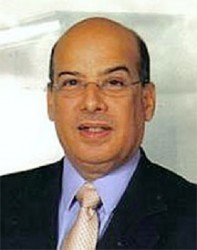Just a few weeks after the Georgetown Chamber of Commerce and Industry (GCCI) promulgated its Competitiveness Manifesto which included a recommendation on strengthening economic diplomacy there have been soundings elsewhere in the Caribbean about the need for diplomatic missions to play a more central role in strengthening economic links between states in the region.

The discourse is by no means a new one. During the early 1980s Caribbean governments actually addressed the issue of making their diplomatic missions more cost-effective by revisiting the desired outcomes of their diplomatic efforts and paying greater attention to the role of missions in fostering closer economic ties with the host countries. The focus, primarily, was on first, positioning Caribbean diplomatic missions to attract markets for their goods in the host countries and host regions and, secondly, requiring overseas missions to sell the investment potential of the respective Caribbean territories abroad.
That attempt was an overwhelming failure. It did not appear that the region even came anywhere remotely close to creating a regional structure for a more cost-effective diplomatic effort (it would probably have required the creation of joint diplomatic missions in some countries). The upshot of it was that Caribbean territories kept what the Guyanese-born retired Antiguan diplomat Sir Ronald Saunders described in a recent article as “the outmoded structures through which they conduct their foreign affairs.”
Over the past two decades, governments in the region have had to return to the issue of how best to utilise their diplomatic missions abroad. This, in view of the fact that firstly, retaining fully-staffed diplomatic missions abroad has become increasingly costly for poor countries including Caribbean territories. Secondly, there is now a greater need for the Caribbean to continually mount lobbying and market search initiatives to attract foreign investment and to find markets for their manufactured and agricultural products.
Guyana is by no means the only country in the region where there have been calls – in recent days and weeks – for more attention to be paid to the role of our diplomatic missions in bringing business to the region. Just days ago, University of the West Indies Pro Vice Chancellor, Professor Andrew Downes, declared that the time has come for Caribbean diplomatic missions to bring “real business” to the region. Professor Downes’s pronouncement was, in effect, a call for the abandonment of the “outmoded structures” cited by Sir Ronald. Those outmoded structures include, crucially, the failure of the foreign ministries either to structure their diplomatic missions abroad to embrace the challenge of economic diplomacy or to thoroughly train their diplomatic staff for that mission.
Guyana is as good an example as any of a Caricom country which failed, over the years – despite sustained rhetoric about economic diplomacy – to refocus its diplomatic effort to take greater account of the need to bring in business – so to speak. Even as developed countries were beginning to appoint businessmen and business-trained diplomats to economically significant capitals, the government here persisted with the practice of appointing diplomats who knew little about seeking out markets or engaging potential investors. In large measure, our own missions and those of some other Caribbean countries did little more than serve as facilitators for delegations visiting from the home capitals.
The incumbent political administration may well lay claim to the creation of a Ministry of Foreign Trade as a means of lending greater impetus to economic diplomacy. Such claims, however, can be questioned on the grounds that there exists no serious evidence that the Foreign Trade Ministry had ever been immersed in serious and results-oriented initiatives to find markets and attract investors. Indeed, there is, arguably, a good deal of merit in the widely held view that the creation of a Ministry of Foreign Trade was no more than a ruse designed to get around a particular awkward circumstance arising out of the need to remove Mr Clement Rohee from the Foreign Ministry portfolio.
There is much to be said for the point that has been made in the pronouncements of both Professor Downes and Sir Ronald which, essentially, is that Caribbean diplomacy now requires a new focus that addresses more centrally the need to grow our economies. Apart from making the point that it would be more economical to keep our diplomatic missions in place if they were “serving in other ways” (like attracting buyers for our goods and investors in our various sectors) Professor Downes says that our missions should be given targets to meet by the end of each year that would see a certain amount of export opportunities being secured.
Sir Ronald’s ‘take’ on the issue is that small states (certainly Caribbean states) “should require their diplomats, as a primary task, to contribute to the earnings of the national treasuries by seeking out and expanding markets for their goods and services, and procuring investment.” Here, it is simply a matter of using different language to convey the identical sentiment.
Here in Guyana there is no evidence that government’s perception of the role that our diplomatic missions ought to play has changed over time. Our Ambassadors, in the main, are political appointees and there has been no serious initiatives taken to infuse more ‘business training’ into the orientation of our diplomats. This, despite the fact that as Sir Ronald points out, developed countries are beginning to place more emphasis on structuring their missions abroad in a manner that ensures that they bring greater returns to the countries’ economies. That aside, government, for a change, needs to take the advice of those informed representatives of the local community who – constantly and justifiably – point to the strictly limited role our diplomatic missions play in pursuit of aggressive economic diplomacy and quietly – there is an increasing aversion on the part of the business community to loudly criticizing any aspect of state policy – advocate that our diplomatic focus be refashioned to fit our economic priorities.




